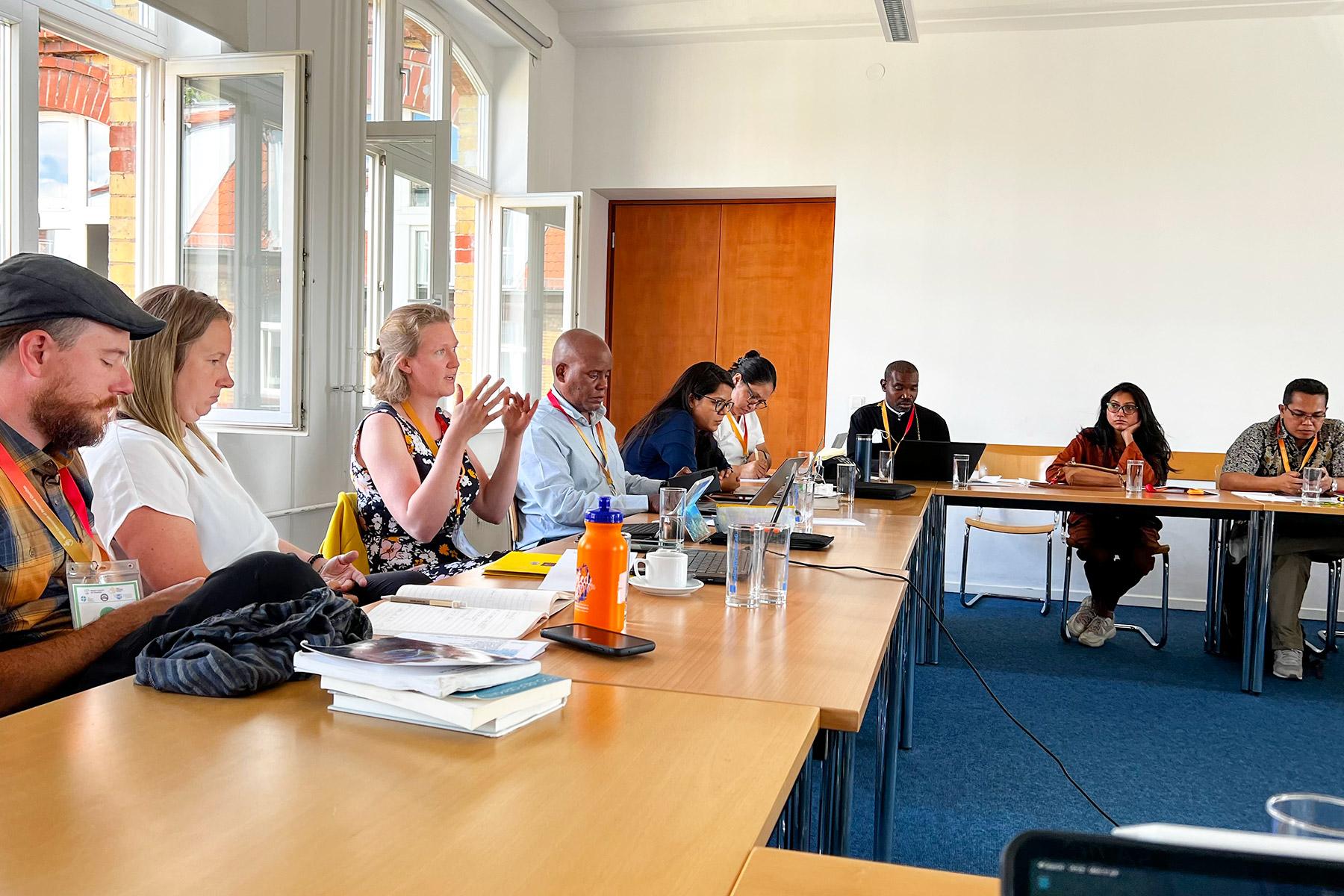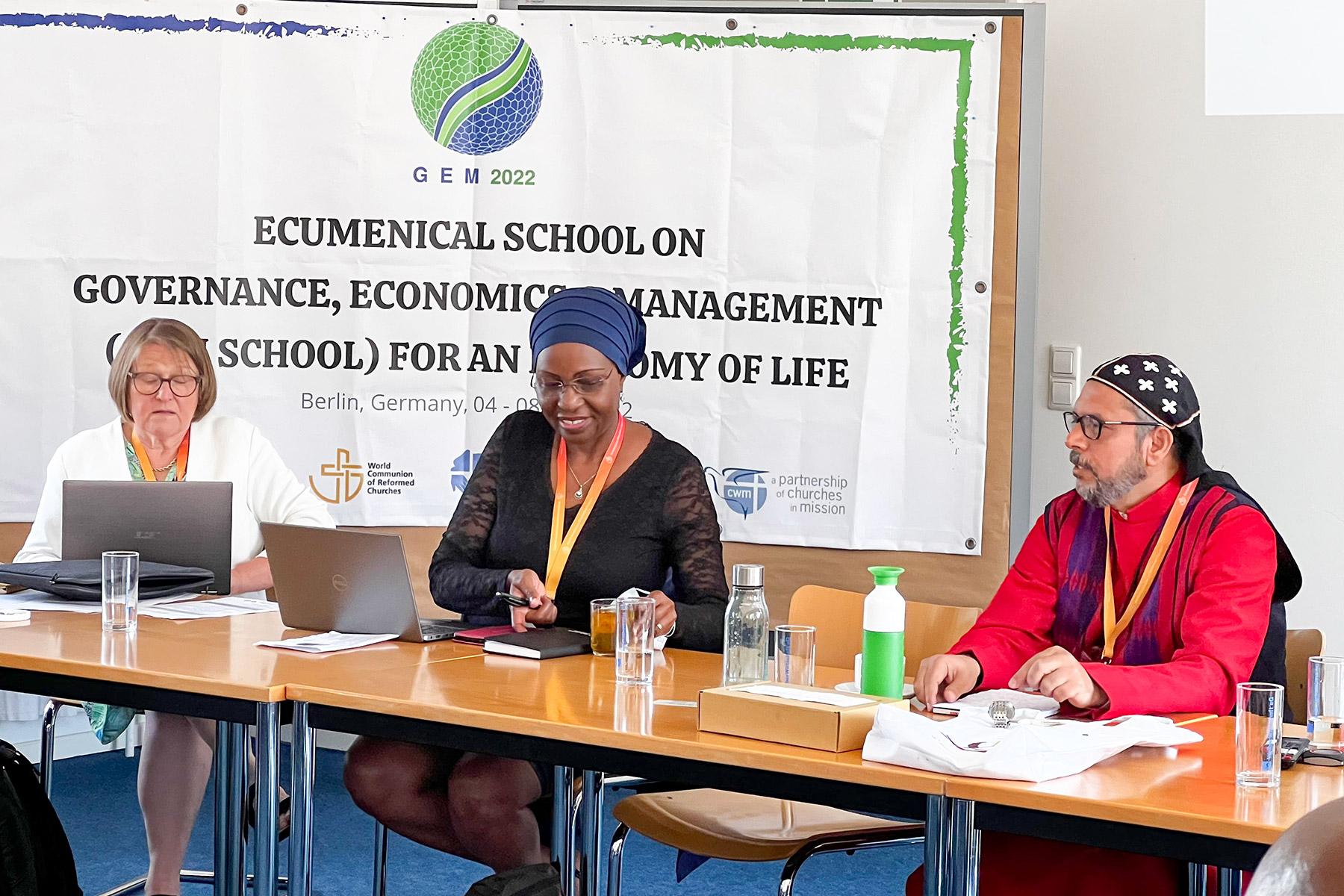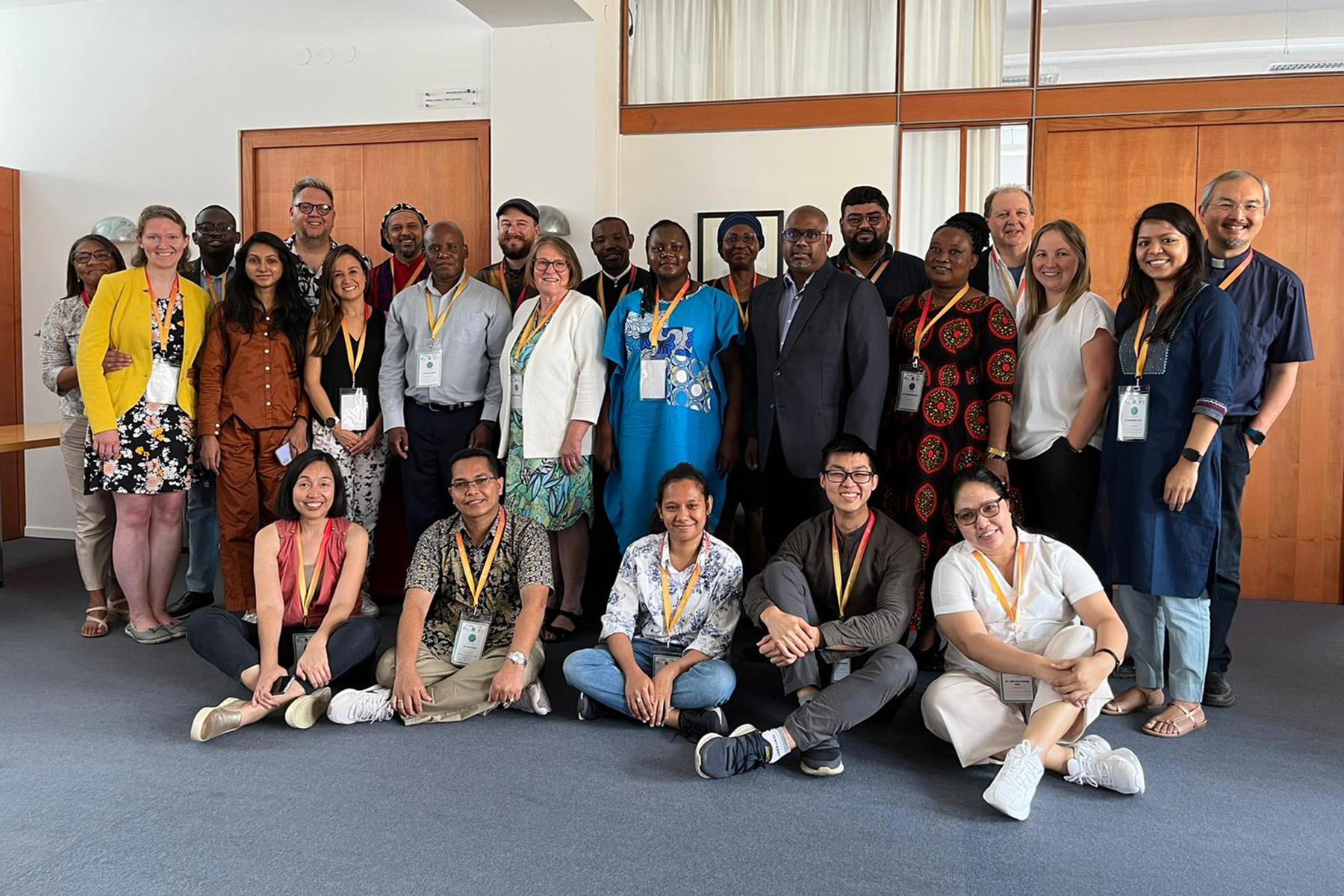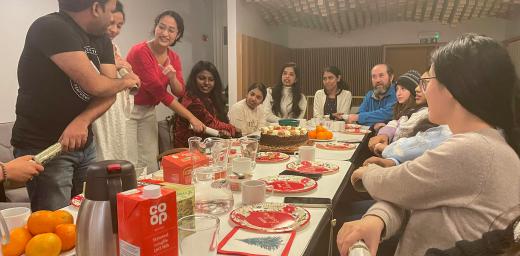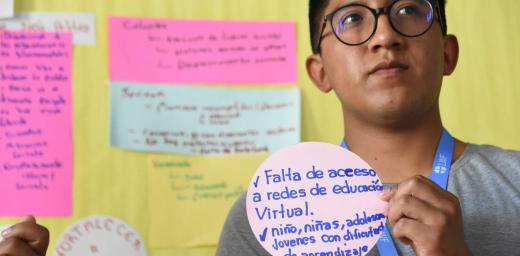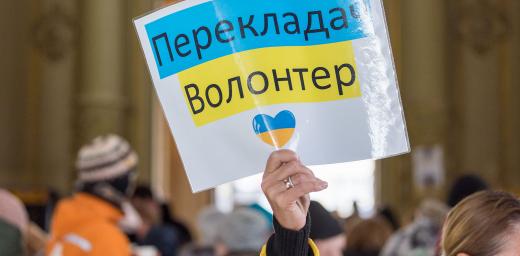(LWI) - The first face-to-face GEM School (Governance, Economics and Management for an Economy of Life) held since 2019 took place in Berlin from 4 to 8 July, with a focus on ecological and feminist economics. The annual training program is part of an ecumenical initiative known as the New International Financial and Economic Architecture (NIFEA) project.
Jointly organized by the Lutheran World Federation (LWF), the Council for World Mission (CWM), the World Communion of Reformed Churches (WCRC), the World Council of Churches (WCC) and the World Methodist Council (WMC), the training brought together 30 participants from more than a dozen countries. They included ecumenical and church leaders, justice advocates, economic activists, pastors and theological students.
“GEM School provides us with a concrete way to learn from each other – theologians and lay people, economic experts and social advocates, multi-generationally,” said Rev. Dr Sivin Kit, LWF’s Program Executive for Public Theology and Interreligious Relations, who led morning worship on the opening day.


